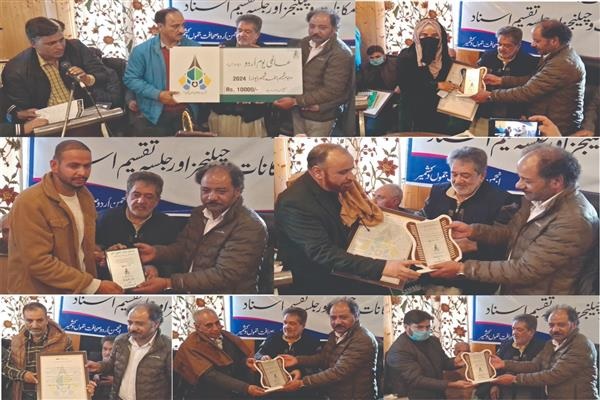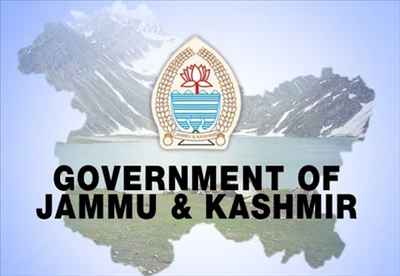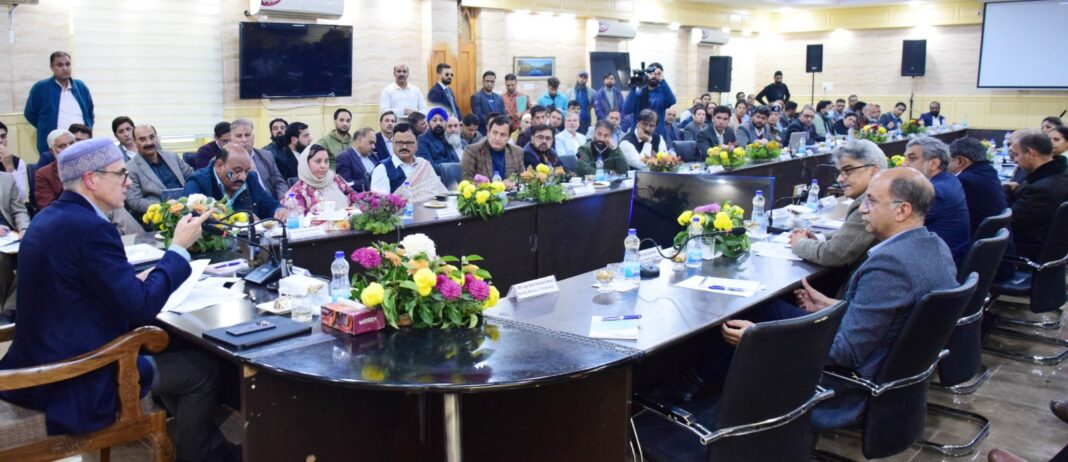Srinagar, Nov: The Anjuman Urdu Sahafat hosted a momentous event at Tagore Hall today, commemorating World Urdu Day and reflecting on the vibrant history and future of Urdu journalism. The gathering spotlighted the evolving role of the Urdu language in the media, emphasizing both the legacy and challenges of Urdu journalism in today’s digital age.
The event, which attracted a wide range of distinguished personalities from the media and political landscapes, included the presentation of Lifetime Achievement Awards to two key figures in the Urdu journalism community. Manzoor Anjum, Editor of Daily Uqab, and Abdul Rashid Shah, Editor-in-Chief of Daily Nida-e-Mashri, were recognized for their lifelong contributions to the field.
Additionally, the prestigious Shamim Ahmad Shamim Award was bestowed upon Mohammad Shafi Samanani, founder Editor-in-Chief of Daily, for his pioneering work in Urdu journalism. The event also paid tribute to the legacies of late Urdu journalism icons, including Ghulam Mohiuddin Rahbar, founder-editor of Weekly Rahbar, and Aziz Kashmiri, founder-editor of Daily Roshni, who were honored with posthumous awards for their invaluable contributions.
Embracing Digital Evolution While Honoring Tradition: A Vision for Urdu Journalism’s Future
The ceremony also recognized Dr. Ruhi Jan, an academic scholar in Urdu journalism, for her scholarly contributions to the field. Key speakers at the event included former Minister Naeem Akhtar, who addressed the gathering alongside prominent journalists such as Masood Hussain, Editor-in-Chief of Kashmir Life, and BBC correspondent Riyaz Masroor, the event’s chief guest.
Riyaz Masroor highlighted the rising trend of Urdu journalists engaging with digital platforms, noting that while print media faces a decline, digital content in Urdu continues to thrive. He called this shift a positive development for the future of Urdu journalism.
Discussions also focused on the evolving demands of the industry, with speakers stressing the importance of adapting to new media landscapes while maintaining the rich traditions and professional standards that have defined Urdu journalism. Professor Nasir Mirza emphasized the importance of fostering the Urdu language, while speakers called for improved training and skill development to better prepare the next generation of journalists.
The event culminated with the posthumous award of a certificate of appreciation to Mohammad Shafi Khan, the late founder-editor of Wadi Kashmir, and a tribute to journalists who had passed away in the last year.
As Urdu journalism faces both exciting opportunities and new challenges, the event underscored a collective commitment to enhancing the field and ensuring its continued relevance in the rapidly changing media environment.






